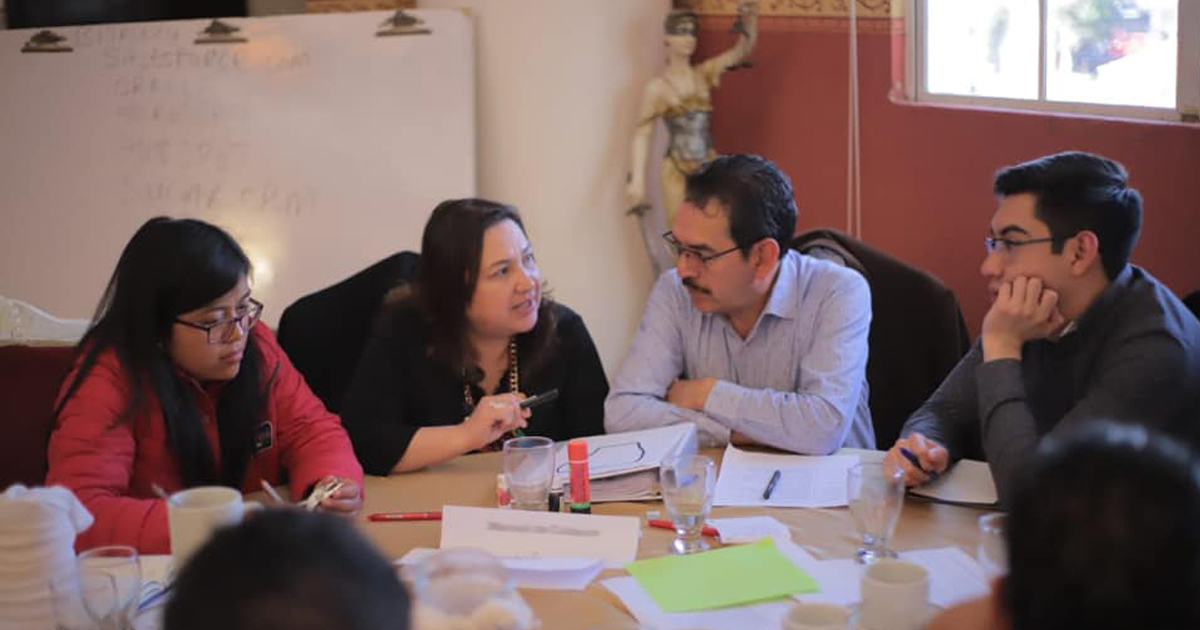In Guatemala, Scale Up Brings New Opportunity to a Troubled Triangle

From the negative headlines casting a pall over Central America’s Northern Triangle of Guatemala, Honduras, and El Salvador, it’s easy to imagine a region beset exclusively by failure and despair.
Yet, far from the public eye, in the city of Quetzaltenango (locally called Xela), a coalition of private sector leaders (Fundesa) has partnered with the Babson Entrepreneurship Ecosystem Platform (BEEP) to create new opportunities by accelerating the pace of growth of dozens of local firms.
That growth comes through implementation of BEEP’s Scale Up® methodology for cultivating ecosystems for vibrant entrepreneurial growth. On May 7, Scale Up Xela launched phase 2 with a six-month Scalerator® , a program that focuses on helping local small businesses productively scale up to expand, and, by doing so, inspire other local firms to also create greater growth and employment opportunities. The firms range from three to 30 years old, and include family-owned firms, manufacturers, and service companies.
Those participants already are seeing the impact of the program; in the two months since launch, the majority of the 18 participating companies reported annualized revenue growth ranging from 15% to 46%.
“Just like other Scale Up programs that we have executed in the U.S., Colombia, Brazil, Canada, and Panama, Scale Up Xela has demonstrated that building entrepreneurship ecosystems is best focused on getting more local companies to grow more rapidly and leveraging quick wins to create broad-based economic and social value,” said Vincent ‘Vini’ Onyemah, associate professor of sales and marketing.
Historically, June had been the worst month for third-generation, family-business owner Héctor Urizar, CEO of hardware and construction retailer Casa Atlántida. But, since participating in the Scalerator, he has increased sales by 48% in June, compared to the previous year. It has been his company’s best month in 2019 so far.
Why Scale Up?
“Against all odds and negative publicity, the growth stories coming from Quetzaltenango (Xela) show that our Scale Up methodology yields results in months and even weeks, not the years that are typical in even the best economic development programs,” said Daniel Isenberg, founding executive director of BEEP and faculty director for Babson’s Driving Economic Growth Through Scale Up Ecosystems(DEG) workshop. The idea for Scale Up Xela was launched when four Guatemalan business leaders from Fundesa attended DEG and realized the potential to help their country.
BEEP’s Scale Up methodology for cultivating ecosystems for vibrant entrepreneurial growth was developed by Isenberg and colleagues in wide-ranging local economies such as Colombia, the Midwest United States, and Denmark.
At the heart of the Scale Up methodology are a few simple principles.
Growth is the cumulative effect of hundreds of small growth events. These events are more characteristic of “workhorses,” rather than the now-fashionable unicorns.
Helping more local firms get new growth is more important than growing the number of new firms. If you take care of helping existing companies scale up, breeding successful startups will largely take care of itself.
Increasingly rapid growth is normal and achievable by a broad base of local firms. The Scale Up rule of thumb is 10-20% of the existing stock of firms have immediately releasable growth potential. Growth is not the exclusive province of the top 1% of elite firms which garner the spotlight.
Communicating the hundreds of growth events is a strategic necessity, not an optional luxury, because it stimulates ambition and sends a strong signal of success. Communicating growth is not natural, but it can—and needs to—be learned and practiced.
Growth is its own incentive. Not just for the scaling entrepreneurs, but for many of the local stakeholders, be they banks, government, educational institutions, or larger corporations. More local firms growing more rapidly helps many stakeholders better achieve their unique objectives, which are inherently different from each other.
The impact of implementing this methodology is long-lasting. The success of Scale Up Guatemala does not depend on any macroeconomic or geopolitical improvement. Success is not conditioned upon any particular election outcome next month. To the contrary, we assume that Guatemalan companies must and can grow profitably in less than ideal circumstances, without international aid and without public sector support.
By local firms and local leaders taking their economic fate into their own hands, Scale Up will contribute to a broad base of prosperity, and, incidentally, make macro social and economic challenges easier to face.
Posted in Insights



